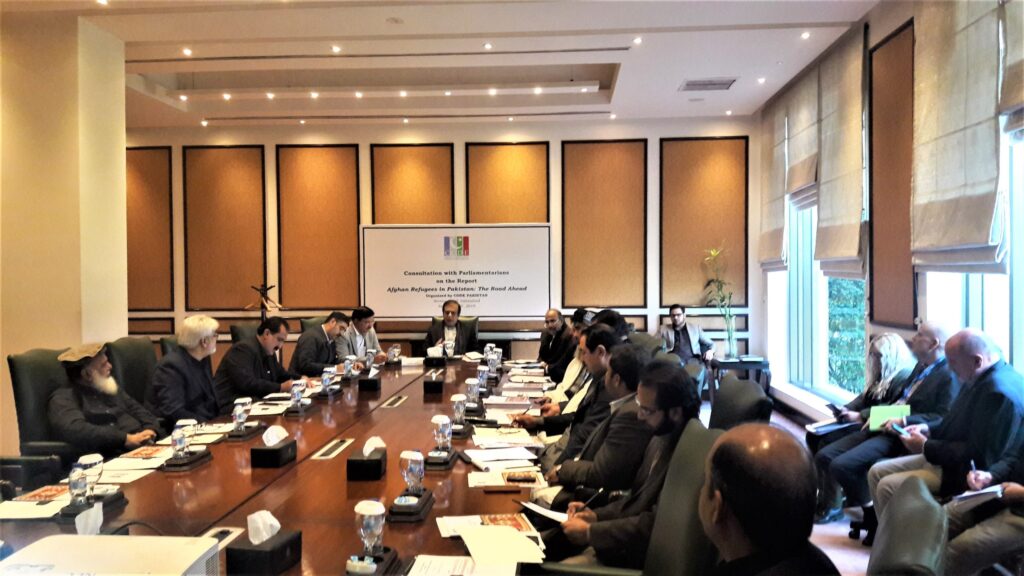RADAR

Rationalizing and Apprising the Discourse on Afghan Refugees (RADAR) was a continuation of our research and previous policy advocacy work with regard to Afghan refugees in Pakistan. Pursuant to Point 19 of the National Action Plan (NAP), which calls for the need to formulate a comprehensive policy for the management of Afghan refugees in Pakistan, CODE PAKISTAN initiated a study to facilitate national policymakers in conducting a rationalized discourse on Afghan refugees in Pakistan. After more than a year of extensive research through a review of existing literature and individual consultations with a wide range of relevant officials from throughout the country, CODE PAKISTAN compiled a report titled Afghan Refugees in Pakistan: The Road Ahead in May 2019.
The report shed light on the downward trend of policy perception regarding Afghan refugees, which since the 1990s has been predicated upon negativity. It further revealed some troublesome findings regarding the disconnect between prevalent belief and empirical facts on key issues, which, inter alia, include the economic contribution of Afghan refugees in Pakistan and their alleged status as a security threat. Indeed, the report amply demonstrated that there is a considerable amount of administrative and legal confusion about Afghan refugees in Pakistan, which needs to be addressed.
Keeping this gap in mind, CODE PAKISTAN identified a need for generating an informed policy level debate in parliament on the subject of Afghan refugees in Pakistan, through individualized advocacy discussions with parliamentarians covering not only the security aspect of the refugee situation, but also the economic contribution of Afghan refugees, their social integration, and the adoption of a National Refugee Legislation (NRL). The objective of these discussions as part of RADAR was to rationalize policy-level discourse and the perceptions of the most relevant stakeholders on the subject.
To this effect, CODE PAKISTAN, as part of RADAR, identified a number of parliamentarians representing key political parties in the National Assembly and Senate to apprise them on the findings of the report and other refugee-related issues during individual meetings in order to enhance their knowledge. Following the individual meetings, CODE PAKISTAN organized and facilitated a roundtable discussion with a group of parliamentarians on legal and administrative topics specific to Afghan refugees. The project concluded with a consensus on recommendations for the way forward for the management and voluntary repatriation of Afghan refugees in Pakistan.
